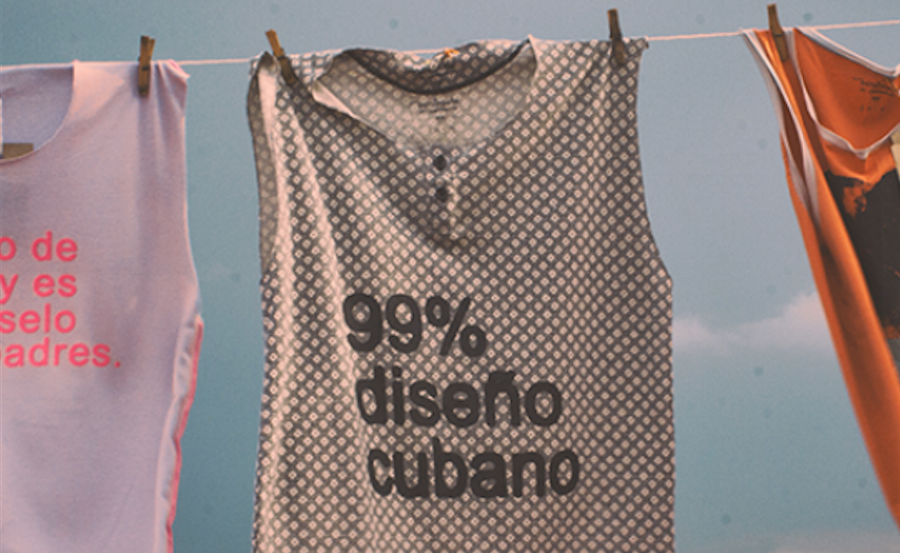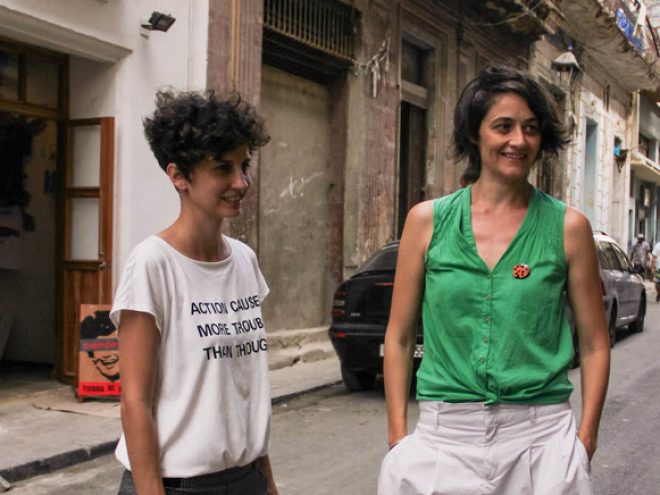
image: Clandestina
Clandestina is not waiting to see how President Donald Trump’s increased restrictions on travel to Cuba will affect its bottom line. Instead, the Havana-based apparel company is making its wares shoppable on an international scale … via e-commerce, thereby becoming the first-ever Cuban brand to sell online to the rest of the world. According to Reuters, Clandestina’s e-commerce website – clandestina.co – went live on Thursday, “no small feat in a country with minimal internet access.”
To date, Cuban native Idania Del Rio, 36, and her Spanish business partner Leire Fernandez, 42 – who launched Clandestina in 2015 – have had to be crafty in order to get their hands on supplies for the brand due to trade restrictions in Cuba, namely limitations on imports for the private sector. This has meant “friends bringing batches of raw t-shirts in their suitcases from abroad [which Del Rio and Fernandez] would print their designs on,” per Reuters.
As for how the Clandestina founders will be able to supply potential international buyers that visit their site in light of the strict U.S. trade embargo and supply restrictions, which make it virtually impossible to ship from Cuba, Del Rio and Fernandez say that they have “found a way.” And that means manufacturing in the U.S.

Idania del Rio (left) and Leire Fernandez (right)
While “all of our products are designed in Havana, they will be made in the U.S.,” says the duo, “because we don’t have much choice. Manufacturing in Cuba and shipping abroad is nearly impossible. Navigating through intense US and Cuban import/export regulations and abiding by high tariffs made our heads spin.”
“All our products on this site are sustainably sourced, printed by our partners in Columbia, SC, and shipped all over the world.”
“The Clandestina brand has always been one about succeeding against the odds and overcoming the seemingly impossible,” Del Rio told Reuters, which calls the brand an example of the “ingenuity of Cuba’s fledgling private sector in overcoming obstacles on the communist-run island and abroad.”
Clandestina – among other privately held business, including other stores, bed-and-breakfasts, and restaurants – has benefited from a surge in tourism, especially with U.S. citizens, since President Obama eased some of the country’s travel and trade restrictions in connection with former Cold War foe Cuba before the end of his Presidential tenure.
Given Trump’s tough stance on Cuba, including the introduction of tighter restrictions on travel to the island this summer, and the very recent warning from the U.S. State Department about a series of alleged attacks on its diplomats in Havana, tourism will likely be less prevalent, at least for the time being.
But del Rio and Fernandez are not worried. “If the Americans don’t come to Cuba, we will go to the United States,” they said. Due to Fernandez’s Spanish citizenship, they were able to formally register Clandestina as a company in the U.S., and per Reuters, “a loophole in the embargo allows her firm to hire Cuban designers.”
The aim, according to the duo, is to build Cuba’s first global fashion brand.







